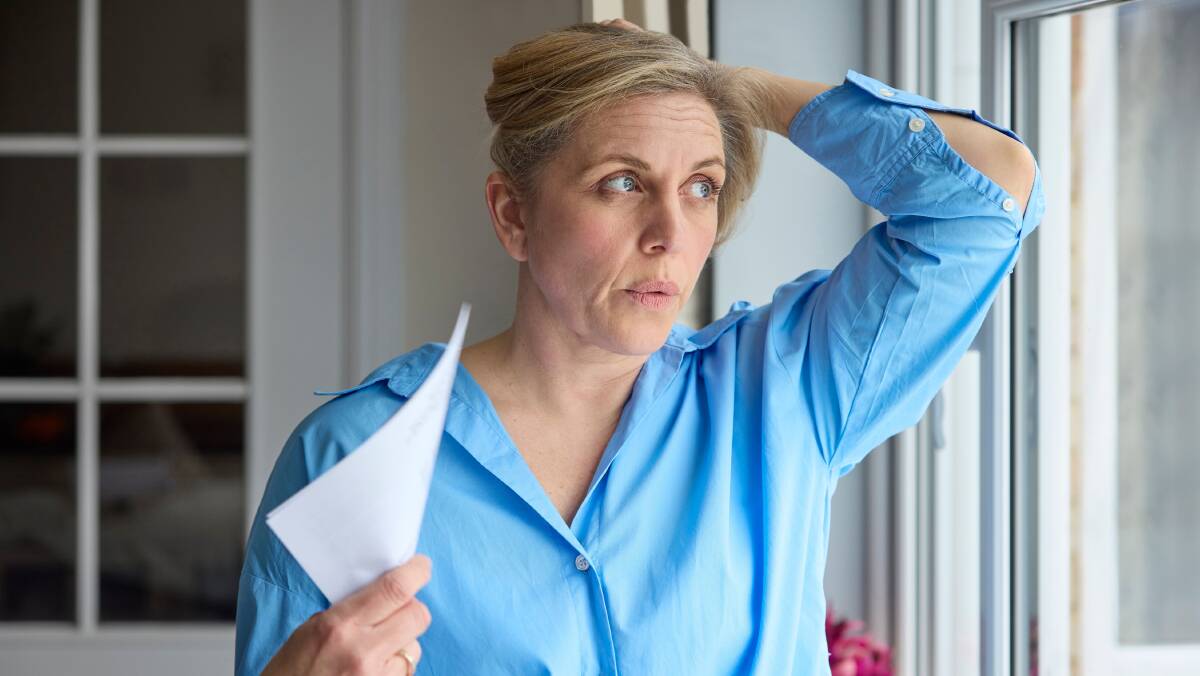This year almost 3 million Australian women will find themselves in an age group where menopause is likely to affect their lives in some way.
While many women find this life transition relatively smooth, hundreds of thousands will be severely affected.
The symptoms and consequences of menopause can have a profound effect on women's lives. It can disrupt their work, their relationships, and their ability to live life to the full.
Menopause also can drain women's finances with surveys showing that more than a quarter of Australian women reporting having taken breaks from work and study at the time.
From a strictly economic perspective it has been estimated that dealing with menopause has had a $100 billion effect on Australian women when lost earnings and superannuation are taken into account.
Late last year the Senate launched a long-overdue inquiry into menopause and its effects on Australian women, their families, and the country's health system. The inquiry is due to report in September this year: that report can't come soon enough.
Despite the millions of women affected, and the costs both to the country as a whole and to individual women, Australia has no national framework or plan to deal with menopause.
There is no high level visibility of menopause as an issue, and because of this Australian women are subject to yet another injustice.
The Senate inquiry aims to deal with the physical, mental, and emotional wellbeing of women affected by menopause, and access to healthcare services. Part of this remit will be to raise levels of awareness among doctors, and to improve the availability and affordability of menopause treatments.

To help the millions of Australian women who are experiencing the negative effects of menopause, perhaps the most important goal should be to lift the stigma associated with this normal life transition. It is well past time that we started a national conversation about menopause and how it affects women.
It is difficult not to think that, if menopause had a direct physical effect on men, the issue would have been dealt with a generation ago.
Yet in 2024 many women still face discrimination, bias, and a sense of shame speaking about menopause and how it affects them.
Woman are already facing financial headwinds dealing with menopause. The cost of seeking care should not be an additional burden, or a disincentive to asking for medical help if it is needed.
The government must respond and ensure that every Australian woman - no matter her cultural background, where she lives, or her financial capacity - has affordable access to healthcare. Many of the issues around menopause are not suited to a rapid visit to the doctor.
Affordable long consultations, where all of the issues affecting women can be dealt with properly, must be available to any woman who needs them.
The cost of treatments to relieve symptoms and protect women from conditions such as osteoporosis must be affordable for everyone.
Many Australian women are reluctant to talk about menopause, or downplay its effects on their lives. Where help is available many women either are not aware or find it difficult to access care and support.
READ MORE:
Putting menopause back on the national agenda and acknowledging what a critical issue it is for so many women must be the main goal of the inquiry.
This will put advocacy for women's health at an important time of their lives front and centre.
It also gives us the opportunity to deal with dangerous mis- and disinformation on social and other media. Poor information that holds so many women back from embracing care that can improve their lives, relationships, and work.
Millions of Australian women are looking to this inquiry to put things right. To sweep away healthcare injustices that have had such a cost for so many women over so many years. Let us not miss this opportunity to improve the health of the nation.
- Professor Steve Robson is a Canberra doctor and the president of the Australian Medical Association.

